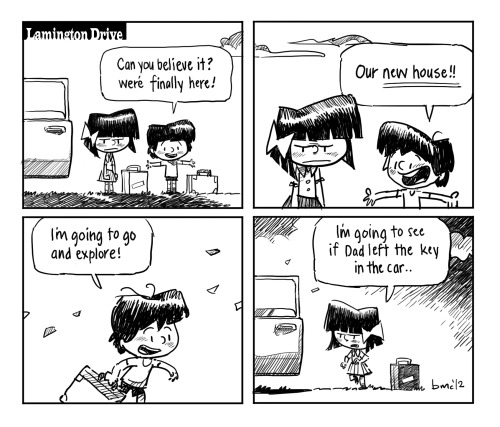
Image Credit: The first Sunday Assembly Meeting, BBC
Meet The Sunday Assembly. An atheist “church”…
“The Sunday Assembly is a godless congregation that will meet on the first Sunday of every month to hear great talks, sing songs and generally celebrate the wonder of life. It’s a service for anyone who wants to live better, help often and wonder more.
Come on down to hear inspirational speakers and to enjoy a morning that is part-foot stomping show, part-atheist church.”
The atheist church: it’s all about you…
The church’s co-founders wrote a piece as part of the same New York Times conversation as Penn Gillete’s piece I wrote about the other day.
“We started The Sunday Assembly… because the idea of meeting once a month to sing songs, hear great speakers and celebrate the incredible gift of life seems like a fun, and useful, thing to do.
What’s more, church has got so many awesome things going for it (which we’ve shamelessly nicked). Singing together in a group? Super. Hearing interesting things? Rad. (Our first reading was Theodore Roosevelt’s Man in the Arena bit.) A moment to think quietly about your life? Wizard. Getting to know your neighbors? Ace.”
This seems to be building on the theme of philosopher Alain De Botton’s Religion for Atheists (incidentally for a more eloquent treatment of De Botton’s work than you’ll find here, or elsewhere, be sure to read Dan Anderson’s observations on a night with De Botton while he was on the Australian leg of his book tour).
De Botton gave this talk at TED.com that spells out his thinking.
Here’s a summary of De Botton’s thesis in the book, from his own website:
Religion for Atheists suggests that rather than mocking religions, agnostics and atheists should instead steal from them – because they’re packed with good ideas on how we might live and arrange our societies. Blending deep respect with total impiety, Alain (a non-believer himself) proposes that we should look to religions for insights into, among other concerns, how to:
- build a sense of community
- make our relationships last
- overcome feelings of envy and inadequacy
- escape the twenty-four hour media
- go travelling
- get more out of art, architecture and music
- and create new businesses designed to address our emotional needs.
De Botton has taken his idea a little further than the gathering (the ekklesia – which is the word we translate as “church”), he’s planning to build an atheist temple in the middle of London’s finance district.
“Normally a temple is to Jesus, Mary or Buddha but you can build a temple to anything that’s positive and good. That could mean a temple to love, friendship, calm or perspective … Because of Richard Dawkins and Christopher Hitchens, atheism has become known as a destructive force… De Botton revealed details of a temple to evoke more than 300m years of life on earth. Each centimetre of the tapering tower’s interior has been designed to represent a million years and a narrow band of gold will illustrate the relatively tiny amount of time humans have walked the planet. The exterior would be inscribed with a binary code denoting the human genome sequence.”
His proposal has been pretty soundly criticised by other atheists who are less willing to buy into anything that uses “atheist” and “religion” in the same sentence without the qualifiers “not a”… Here’s another piece from the Guardian… and the concluding quote about how unnecessary De Botton’s approach is…
“To answer De Botton’s original question, atheists do have their own versions of great churches and cathedrals. If the antithesis of religion is scientific rationalism, then surely its temples are the British Library, theMillau Viaduct and the Large Hadron Collider? If it’s about glorifying creation, then why not the Natural History Museum or the Eden Project? What about the Tate Modern? Or Wembley Stadium? Or the O2? Or the Westfield shopping centre? Perhaps non-believers should decide for themselves what a temple of atheism should be.”
There’s something in that criticism, but it’s the same sort of criticism I might make against the notion of carving out “sacred space” from a sacred creation. If the earth is the Lord’s and everything in it – then why make a church building when you can meet on the beach. I think there are actually good sociological reasons for creating spaces to use and gather for mission, and great reasons for those spaces to look nice and inviting, and even for them to help people grasp something of the God we follow… but that space isn’t really sacred in any magical sense.
It seems from these two examples that some atheists recognise the good and compelling aspects of religion, and they’re trying to copy it by capturing some of the nature of religion, without the essence – it looks like, at this point, the process boils down to two alternative methodologies – trying to capture something transcendent in art and architecture, and trying to capture something more meaningful in human relationships built around a core commitment… and why not, these are fairly consistent with how religions operate in time and space, sociologically.
In recreating a gathering, and recreating a “sacred space,” these newer atheists are following the sort of religious handbook you follow if you believe religion is a purely human invention, and the transcendental aspects of religion are something we create through manipulating the senses and emotions.
These are the worst bits of religion. Not the best bits.
They’re good things – but they’re not the sort of good things that make religious belief worth sticking with.
A grand building is nice, and can be a testimony to the God who provided order and beauty in the creation. But, in the end, Dawkin’s criticism of De Botton’s project (from the article linked above) is essentially the criticism most protestants have when walking through massive and ornate cathedrals in Europe…
“I think there are better things to spend this kind of money on. If you are going to spend money on atheism you could improve secular education and build non-religious schools which teach rational, sceptical critical thinking.”
The Sunday Assembly went for corporate singing as one of the artsy elements of religion that is worth maintaining in a post-Christian (non-Christian) church. And corporate singing is good.
In fact, just to be clear, I’m not saying great architecture, and great music are bad things – they are good things, they’re just some of the worst parts of Christianity.
At this point it’s worth throwing to Dan Anderson’s assessment of De Botton’s plundering of the “gold” of Christianity… and the way it highlights something lacking in how my tradition, and Dan’s, do religious “culture”…
“Too frequently, conservative evangelicalism operates with a truncated theological anthropology. As a product of the rationalist Enlightenment, evangelicalism frequently forgets the power of exactly the kinds of practices that De Botton commends: we jettison liturgical habituation to the truths of the gospel, we fail to engage with the fact that we are creatures of desire, of community, who thrill to beauty, who are inescapably embodied. If the full galleries at the Opera House last night are anything to go by, people are craving the kinds of things that make church ‘churchy’. Ironically, in our passion to make churches as welcoming to outsiders as possible we actively trash our rich heritage of these practices until the church gathering becomes indistinguishable from the philosophical lecture, apart from some vestigial (embarrassed) singing.”
That’s important. But this is silver cutlery stuff. At best. When it comes to the treasures of Christianity.
Restored human relationships, and a bit of perspective about the universe and our place in it – the other, slightly more transcendental aspects of the Sunday Gathering and De Botton’s open air temple, are also great things about Christianity. Probably the slightly better gold plated tableware. But human relationships are really hard – even in a church context where some of our central tenets – that we’re all equals united in Christ, naturally sinners who’ll stuff up, but new creations, called to put others first, called to love our neighbours as ourselves, and to serve a common purpose – should mitigate selfishness and some of the brokenness in how we relate to one another. The church is full of people hurt by how they’ve been treated by other members of the church – who’d leave if these things weren’t true. If we were meeting on the basis of being able to relate well to one another without these central truths of Christianity we’d be splintering into denominations ad infinitum or at least until we had as many churches as there are people. The Sunday Gathering, or any atheist church, loses all of these elements and is pushing a pretty optimistic view of human nature.
That’s beginning to tap into the really good bit of Christianity, and the church, and it’s a good bit that is out of reach for atheists – precisely because atheism is not a religion, or a belief in something. At this point there are two questions I want to explore before wrapping up… the first I think is predominantly something for non-Christians (possibly atheists) to think about when it comes to the exercise of trying to copy the good bits about church, the second is for Christians given that there’s some sort of movement wanting to duplicate the good (but not essential) bits of church…
What is (good about) church?
A lot of this depends on the idea that Christians are gathering around something that is supernatural and true – that there is a God, who revealed himself in Jesus and through the Bible – in fact, those things are so central to what it means to be Christian that there’s no value to be redeemed if they’re not. I reckon Paul’s right at this point, in Corinthians, where he says if Christianity isn’t true, then individual pursuit of pleasure (eat, drink, and be merry) is really where it’s at (though, for extroverts, this might be found in something that looks like church). Because death is the ultimate reality. But if Christianity is true, then death is the penultimate reality – it’s a gateway, to God’s presence.
If there’s no truth to religion then there’s no point for doing anything altruistic, and it’s hard to demonstrate that the good life is tied up in anything other than selfishness – why you’d gather with other people who think this way anyway – unless there is a deeper human yearning for community and connection with something bigger than ourselves – is beyond me, perhaps you can explain in the comments. And if that deeper yearning exists, then it could be explained by an appeal to human nature, but it opens the door for a god to have created humans with this capacity. Anyway. I digress.
There’s really nothing good about the Christian church, in my opinion, if you take out the core bits of Christianity. This is especially true if most of the non-core bits of Christianity are shaped by human culture. And they basically are. Any good sociologist should be able to show that… it’s why churches look and feel different in different times and places. If you want to build a society around the best bits of culture then it’s only worth pillaging the church so long as Christians are doing our job and creating the best bits of culture. I’m not sure that’s been really true of the church since Bach (or maybe Tolkein and Lewis). Which is a tragedy, and reflects a bit of a failing of the church in terms of how we think about creation.
One of the really powerful movements from the Old Testament – where the Temple was kind of important – to the New Testament, is the movement in how Sacred space is understood. This is one of those cool things where seeing how something develops across the whole Bible, and into the future, is really cool – and it’s pretty foundational to how we define church, and what the “good” essential bit of church is.
It all starts in the beginning… one of the fun things about Genesis 1 and 2, and the Garden of Eden, is that the Garden is described using the same sort of language and setting that is later used for the Temple in Jerusalem. You can read more on this in this article “Eden, the Temple, and the Church’s Mission” which is a nice summary of Beale’s book The Temple and the Church’s Mission . Basically Adam and Eve were given the job of being priests, expanding God’s temple over all of creation (the verbs used when God gives Adam a job in Genesis 2 are used of the priests later). When things go badly, part of the restoration story of the Old Testament is pushing towards recapturing God’s presence with humanity – sacred space is represented in the Tabernacle, then the Temple… if people want to capture something good and transcendental the Old Testament centres this around the city of Jerusalem, which is part of the tragedy of Exile. Sacred space was really important in the Old Testament, because access to a sacred space was a measure of how things were going for the sacred people – when they were being faithful to God they’d have access to this space, and good things would happen, when they were bad, they’d lose access to that space and bad things would happen.
. Basically Adam and Eve were given the job of being priests, expanding God’s temple over all of creation (the verbs used when God gives Adam a job in Genesis 2 are used of the priests later). When things go badly, part of the restoration story of the Old Testament is pushing towards recapturing God’s presence with humanity – sacred space is represented in the Tabernacle, then the Temple… if people want to capture something good and transcendental the Old Testament centres this around the city of Jerusalem, which is part of the tragedy of Exile. Sacred space was really important in the Old Testament, because access to a sacred space was a measure of how things were going for the sacred people – when they were being faithful to God they’d have access to this space, and good things would happen, when they were bad, they’d lose access to that space and bad things would happen.
Then we get to the New Testament. And everything changes. First God dwells with the world in the person of Jesus (read John 1). Then, Jesus makes it clear who God’s people are, after he leaves, because they’re given his Spirit (see the closing chapters of John, and all of Acts). Sacred space isn’t a big deal for the early church. They’re meeting in houses, town halls, the mini-sacred spaces of the Jews (synagogues)… and the word “church” is being used for the gathering – and Paul freely uses temple language to describe individuals (we’re the dwelling place of God) and the church more corporately. There has been a movement. The people are sacred, the dwelling place of God, and space is relatively unimportant.
The church gathering – the people – is good because it anticipates where we’re heading in the long term, the Bible ends with a description of the church of the future – and in some ways this is the aspirational standard we’re struggling to meet now, as broken humans in a broken world.
“Then I saw “a new heaven and a new earth,” for the first heaven and the first earth had passed away, and there was no longer any sea. 2 I saw the Holy City, the new Jerusalem, coming down out of heaven from God, prepared as a bride beautifully dressed for her husband.3 And I heard a loud voice from the throne saying, “Look! God’s dwelling place is now among the people, and he will dwell with them. They will be his people, and God himself will be with them and be their God. 4 ‘He will wipe every tear from their eyes. There will be no more death’ or mourning or crying or pain, for the old order of things has passed away.”
Temples and religious spaces are pretty important to the sociology of religion, but they’re not really important in Christianity in terms of what it is to be part of the church. Where God dwells in us, in a way that unites us.
Gatherings of people around a purpose in a way that breaks down hostility and creates love are good things, and again hugely important when it comes to explaining religion as a social phenomenon – but unless the purpose is really big, and people are so bought into it that they’re able to overcome personality differences, or perhaps alternatively there’s either some really good external help for dealing with differences, or an internal change in nature, my guess is people will stay while it suits them.
The great and important bit of Christianity and being the church is that we gather around the ultimate purpose, not around an absence of purpose, or the purpose of trying to “live better” in a broken and frustrated world where tears, death, mourning, crying and pain are penultimate realities.
The better news is that our understanding of humanity changes – not only to give us a pessimism about human organisations and how individuals will react to situations, but because we’re united in Jesus, and our nature is changed through the Holy Spirit – we can truly love others and appreciate gathering together only if we’re cognisant of the God who is there, who we’re gathering to celebrate, and the work he’s done in bringing a bunch of broken people together. Church is fundamentally not really about self-improvement (though that might be a bi-product), but about thankfulness to God, and service of others in the hope that other broken people will know God too. We gather around a story that makes us something, connects us to something – each other, sure, but ultimately we gather because we have been connected to God, through Jesus, with an amazing future. Our narrative is pretty powerful.
The atheist church, especially as the Sunday Gathering defines it, is far too self-serving to be a long term proposition – perhaps that’s why they’ve set the bar pretty low at monthly, as opposed to the picture of what it means to be the church in the Bible, which sees the gathering as a regular expression of a permanent reality.
The other big problem I see with the atheist church is the complete and definitive absence of a positive narrative. By its very nature, atheism, and corporate atheism, is a lack of belief, or a gathering around a lack of belief. The strength of Christianity is the story it involves – of a God who creates the world, and redeems it from brokenness, through sacrifice, for each person who wants to become part of the story, and it offers a future. It interweaves with our history and resonates with our experience. We’re people who live lives as stories, and communicate in stories – and there’s nothing compelling about the atheist narrative. The story De Botton’s atheist temple tells is depressing. You are a small dot in a big and infinite amount of time and space. You are, essentially, nothing. How can you live a more fulfilling life if that’s the meta-narrative you’re buying into. You might be a bigger bit of nothing than other individuals if you do something great. But it’s a pretty hard sell. Who’d want to be a teller of that story? Who’d want to wake up with that story defining their choices. Believe nothing if you like – but gathering as a celebration of this belief doesn’t seem like the path to happiness. It doesn’t make any sense. Better to gather in an association that celebrates something positive – a wine club, a music club, an Epicurean society… If you really want to capture the essence of the church without its core, it’s tied up in the power of our narrative – this is true for other religious belief systems too, it’s why oppressed minorities are amongst the first to flock to Islam, it’s why Mormonism is big in the US… while De Botton is essentially trying to do this in the design of his temple which functions as an ode to the complexity of the human genome but simultaneously highlights our insignificance in the scheme of things – the qualitative aspects of that story (the facts of which other religions acknowledge) aren’t all that compelling, they lack direction. A good story has a plot.
What can Christians learn from the Atheist Church?
300 people went along to the first Sunday Gathering – it is capturing something, at least initially, that humans are geared to look for. It’s sad that they appear to have a better doctrine of creation than we do, it’s sad that they’re interested in the ephemeral nature of music, the arts, and even science while we’ve, largely, abdicated the responsibility to be not just workers in creation but people who want to make good things that reflect who God is… There’s a balance here, but there are two reasons I think we should be returning to the abandoned field of producing good works – even good works that appear to have little value outside the cultural sphere – because when they’re not turned into some sort of idol, which is what this Sunday Gathering is basically doing, they testify to the God who revealed himself in Christ, in the best story ever told. Good art (and living a good life) is a good response to this story, and doing art (or life) well is a good way of telling this story.
I don’t mean making Christian sub-culture versions of current art either, they’re sub-standard by nature. I mean making the best versions of art, as Christians, having healthy theologies of creation, culture, and work… people are wired to appreciate that, especially post-modern people who have moved a little beyond the idea that we sway people with just the bare facts – which is where we’ve kind of found ourselves in the conservative evangelical circles that I’ve been shaped by. Dan’s quote that I posted above says this better than I will – or at least positions us to be thinking this through, but if these things are naturally attractive to humans, and not contrary to the gospel, then why aren’t we using them?
They can be a distraction from the main thing – the story that we’re on about – but they can be used to help tell our story in a more powerful way that resonates with people and tugs at more than the part of their brain that’s geared towards listening to a boring monologue.
Most idols are good parts of creation that we turn to when we should be turning to God – these things are the objects of idolatry, but they were gold created by God before we turned them into golden cows.
We’ve over-corrected in response to the insidious idolatry that tends to turn good cultural things into ultimate things, and it’s probably time to get the good golden dinnerware out of the closet and start using it, lest it get plundered, copied, and cheapened because of the glut of replicas in the market.











